Afshin
Consumption management and productivity improvement are two solutions to solving the problem of energy imbalance
The Vice President of Science, Technology and Knowledge-Based Economy stated: A production-oriented approach to meeting the country's needs is not efficient, and the approach to energy management and solving the imbalance problem should be focused on managing and optimizing consumption and finding effective solutions to increase productivity
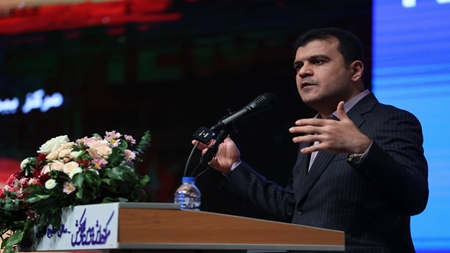
According to the Communication and Information Center in the Vice Presidency of Science, Technology and Knowledge-Based Economy, Hossein Afshin, the Vice President of Science, Technology and Knowledge-Based Economy, examined the dimensions and causes of the country's energy imbalance in the specialized panel "Policymaking in the field of energy and the development of renewable energies with the approach of eliminating imbalances and attracting capital," which was held today, January 14, 2025, at the venue of the Iran Petrochem 2025 conference.
Fundamental challenges of energy imbalance
Afshin considered this issue a chronic problem and the fact that various areas of the country are affected by it is due to fundamental and fundamental problems in the economy, adding: "The imbalances in the country, which are not limited to the energy sector, are among the chronic diseases that our country suffers from, and it should be noted that these problems cannot be treated fundamentally and fundamentally with short-term, short-term solutions."
Stating that growth in energy production will not meet the country's needs without reforming consumption patterns, he continued: "We are constantly talking about breaking records in natural gas production, and currently, we are producing 850 million cubic meters of gas daily. But this production is in a situation where we have more than eleven hundred million cubic meters of consumption, of which more than 600 million cubic meters is for household consumption, and 240 million cubic meters should be allocated to industry. 230 million cubic meters should also be given to power plants, and since we cannot meet this amount of power plant demand with gas, 130 million cubic meters of gas will be allocated to the power plant, and the rest of the need will be met through the allocation of other fuels."
Emphasizing that the governance perspective must be structurally reformed in the energy sector, he continued: "A production-oriented approach to meeting the country's needs is not efficient, and the focus in energy management and solving the imbalance problem should be on managing and optimizing consumption and finding effective solutions to increase productivity."
The Vice President of Science continued: "It is said that the major share of gas consumption is spent on domestic consumption, but isn't the solution to this problem to cut off gas? Our domestic consumers waste 80 percent of energy. When a house is built, at first glance it seems that the building meets the necessary standards, but placing a thermal sensor against the walls of the building when the heating and cooling devices are active reveals a significant amount of energy waste from the building. If we start today and energy issues in buildings are pursued seriously and through legal channels, so that buildings are required to implement energy requirements.
Governance challenges in the energy sector
Afshin considered the most important concern and challenge in the energy sector to be the weakness of governance resulting from serious economic crises and its adverse impact on the energy economy, adding: "This situation is the result of a long period of adverse governance in the energy sector, and correcting this process will take a long time. Correcting this situation towards acceptable conditions will require at least four years."
He added: "To solve the problem of the very high level of energy consumption in homes, we must seek fundamental solutions. When the majority of gas is consumed in the domestic sector, we must seek serious solutions in this area. Solving the problem of high energy consumption in the domestic sector is not simply focused on building culture, and serious measures must be taken in the areas of policymaking, governance, and implementation."
The need to prevent the politicization of technical issues, including in the field of energy
Emphasizing that to improve the energy situation and solve the imbalance problem, we need to reform the executive laws and governance practices, the Scientific Vice President continued: "If we are going to improve the country's energy situation and move towards the Iran of the future with a clear vision, we must reform important issues. One of the most important requirements that must be met is to pay more attention to the views and points of view of experts in this field and prevent the creation of opportunities for non-experts and unfamiliar people to present and apply their opinions in this field."
According to him, our industry needs 240 million cubic meters of gas, while our production does not meet this amount. On the other hand, we are looking for 8% growth in the industry, while industrial growth will not be possible with frequent blackouts.
Creating incentives for investment in renewable energy
Explaining the reasons for the lack of prosperity of renewable energies in the country, Afshin stated: We have always been faced with the phenomenon of cheap energy in the country. 4 to 5 years ago, the cost of a renewable energy power plant was approximately 4 times that of a gas power plant, and it is natural that investors would not be very willing to invest in that type of power plant. Today, however, the price of energy extracted from solar power plants has come close to that of gas power plants, and this has provided the basis for investors to move towards renewable energy-based power plants.
Reform in the two levels of energy "production" and "consumption"
Afshin, emphasizing that the country must pay special attention and attention to improving the issue of consumption to improve the current situation, added: "We must improve the consumption process wherever we can, because with the current situation in the unfinished competition between production and consumption, production will definitely be the ultimate loser. We have an annual increase in energy consumption of 6 to 7 percent, while our production has grown at most by 2 to 3 percent. Today, our imbalance has turned into a shortage, and today we have reached a point where we have an energy shortage."
Afshin, pointing out that we have a problem with efficiency in the domestic sector, continued: "In residential homes, we have more than a million worn-out refrigerators that consume electricity 24 hours a day with an undesirable energy grade. Duct splits and many other non-standard equipment are used with very low energy efficiency. Correcting this trend requires serious planning and implementation by the government. We must find the places of major consumption and correct it."
Referring to the need for reform in energy production approaches, the head of the National Elites Foundation said: "Solar panels are among the sensitive issues that must be followed in their construction and operation, because if these panels are not standardized, within three to four years, they will not have the necessary efficiency and Iran will become a graveyard of these inefficient panels. Standardization must be implemented from now on, monitoring must be carried out, and quality equipment, even at a higher price, must be selected and used so that we do not face a new crisis in the coming years."
The Vice President of Science, stating that the country's energy situation is the legacy of several decades of policymaking in this area, continued: "The government is trying to take steps in the field of consumption, use of renewable energies, increase productivity, reduce pollution, and manage consumption. Dr. Pezeshkian personally devotes time to the issue of energy so that this situation can be improved through the development of clean energies and we can resolve the imbalance problem within the next two to three years."
He also pointed to the anticipated legal incentives for industries to move towards clean energy, reduce energy consumption, increase productivity, and conduct research and development to achieve new technologies in this field, and said: "Countries move towards development when they can pay attention to environmental issues, and it is expected that both the legislative field and the industries will pay more serious attention to the issue of optimal use and increasing energy efficiency."
It is worth mentioning that the specialized panel "Policymaking in the field of energy and development of renewable energies with the approach of eliminating imbalance and attracting capital" was held with the presence of the Vice President for Science and Mohammad Bahrami, Vice Chairman of the Energy Commission of the Islamic Consultative Assembly, and a group of activists from the petrochemical, energy, and related technologies industries. Topics such as the causes of the country's energy imbalance, the country's potential and actual capacities in the field of renewable energies, access to world-class technologies in the field of new energies, the necessity of diversifying the country's energy production portfolio and developing renewable energies, decarbonization solutions and technologies to reduce the carbon footprint of petrochemical products, new solutions to reduce flaring of petrochemical complexes, and solutions and challenges of attracting capital in the field of renewable energies were discussed and examined.





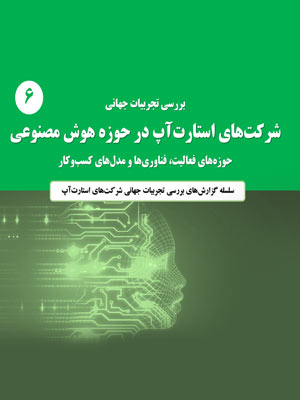


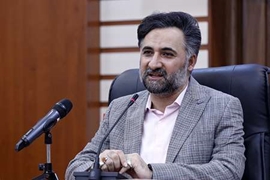
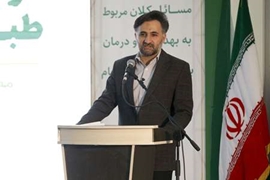
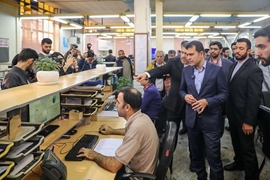
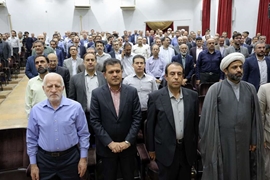
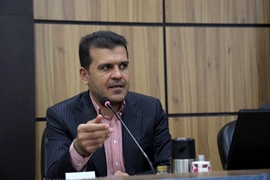

comment